
Reloop discusses INC’s Zero Draft
16 minute video discussing the key elements of this summary paper.

Reloop discusses INC’s Zero Draft
16 minute video discussing the key elements of this summary paper.
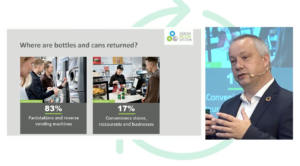
Reuse and Recycling through Deposit Systems – Conference recordings
Series of recordings from the Reuse and Recycling through Deposit Systems conference in Latvia, September 2023.
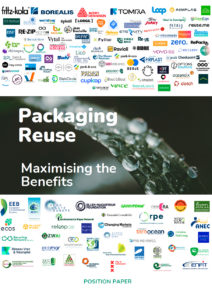
Packaging Reuse: Maximising the Benefits
Our new position paper focuses on the Packaging and Packaging Waste Regulation (PPWR) proposal and the central role of reuse within the draft text.
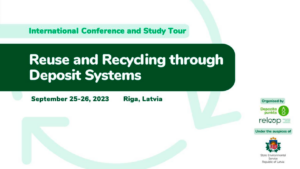
Reuse and Recycling through Deposit Systems
All presentations from the Reuse and Recycling through Deposit Systems conference in Latvia, September 2023.
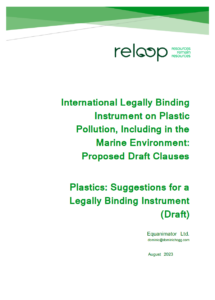
Plastics: Suggestions for a legally binding instrument
Brief document containing proposed draft clauses on plastics proposes forms of wording that could be considered for inclusion in a Zero Draft Treaty.
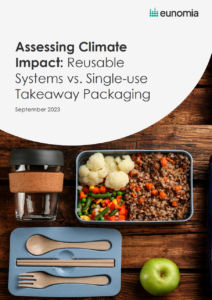
Assessing Climate Impact: Reusable systems vs. Single-Use Takeaway Packaging
Report presenting the results of study designed to evaluate the climate change impacts of reusable packaging as part of a reuse system, in comparison with single-use packaging.
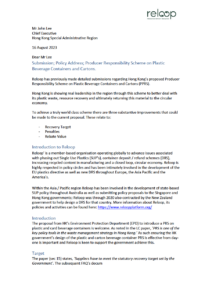
Producer Responsibility Scheme on Plastic Beverage Containers and Cartons
Reloop’s input to the Hong Kong Government regarding the Producer Responsibility Scheme on Plastic Beverage Containers (PPRS), including recommendations on specific issues.
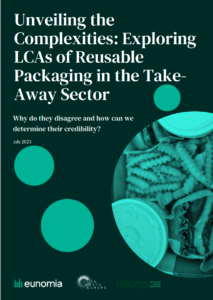
Unveiling the Complexities: Exploring LCAs of Reusable Packaging in the Take-Away Sector
Discussion paper drawing attention to some of the challenges associated with Life Cycle Assessments (LCAs) that compare reusable packaging with single-use options in the take-away sector.
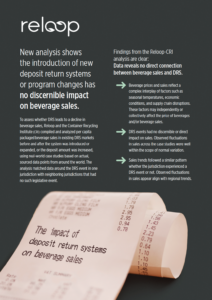
Briefing on impact of deposit return systems on beverage sales
Summary of analysis showing the introduction of deposit return systems has no discernible impact on beverage sales.
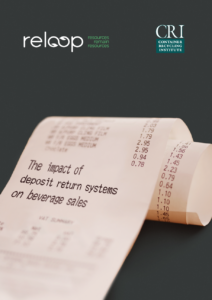
The impact of deposit return systems on beverage sales
Report by Reloop and The Container Recycling Institute (CRI) with analysis showing the introduction of new deposit return systems or program changes has no discernible impact on beverage sales.
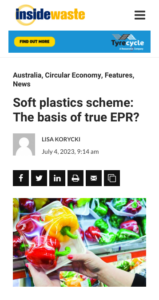
Soft Plastics Scheme: The basis of true EPR?
Article written for Inside Waste, July 2023, Robert Kelman.
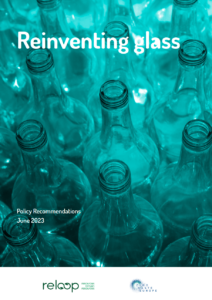
Reinventing glass
Policy recommendations for the PPWR highlighting the urgent need to address the environmental impact of single-use glass packaging.
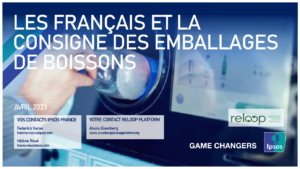
Les français et la consigne des emballages de boissons
This IPSOS survey conducted by Reloop France showed that the French strongly support the implementation of a deposit return scheme for beverage containers.
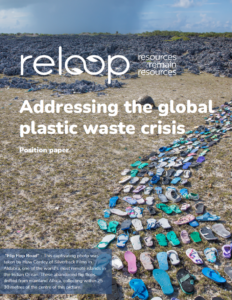
Addressing the global plastic waste crisis
UNEP's Turning Off the Tap study downplays the importance and feasibility of delivering quality and convenient waste management services. This study contends that the scale and costs involved make it impractical to implement comprehensive waste collection services for all.
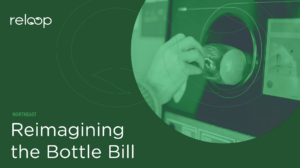
Reimagining the Bottle Bill
Providing stakeholders with data analysis on high-performing deposit system design principles which deliver environmental and cost benefits to individual states and the region as a whole.
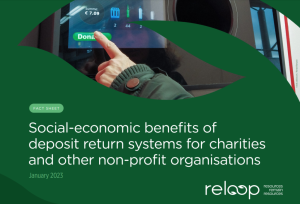
Social-economic benefits of deposit return systems for charities and other non-profit organisations
Short fact sheet going over how deposit return has potential to generate meaningful social-economic outcomes.

Deposit return systems: How they perform
Countries, states, and provinces that have implemented deposit return systems (DRS) consistently achieve higher collection rates for drinks containers than those that rely solely on municipal kerbside collection programmes.
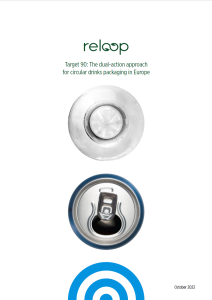
Target 90
Report on drinks packaging explaining how the dual-action approach of a 90% collection target and high levels of closed-loop recycling can deliver critical benefits for the climate, the environment and for business.
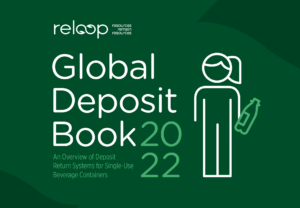
Global Deposit Book 2022
A comprehensive summary of over 50 DRSs that are currently in place – including those scheduled to be implemented by the end of 2022.
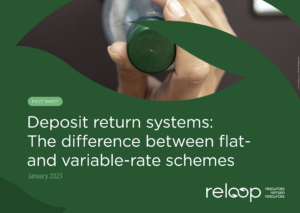
Deposit return systems:The difference between flat-and variable-rate schemes
When it comes to the design of a new DRS, one of the key topics of debate is whether the system should adopt a flat-rate (sometimes called ‘fixed-rate) or variable deposit fee.